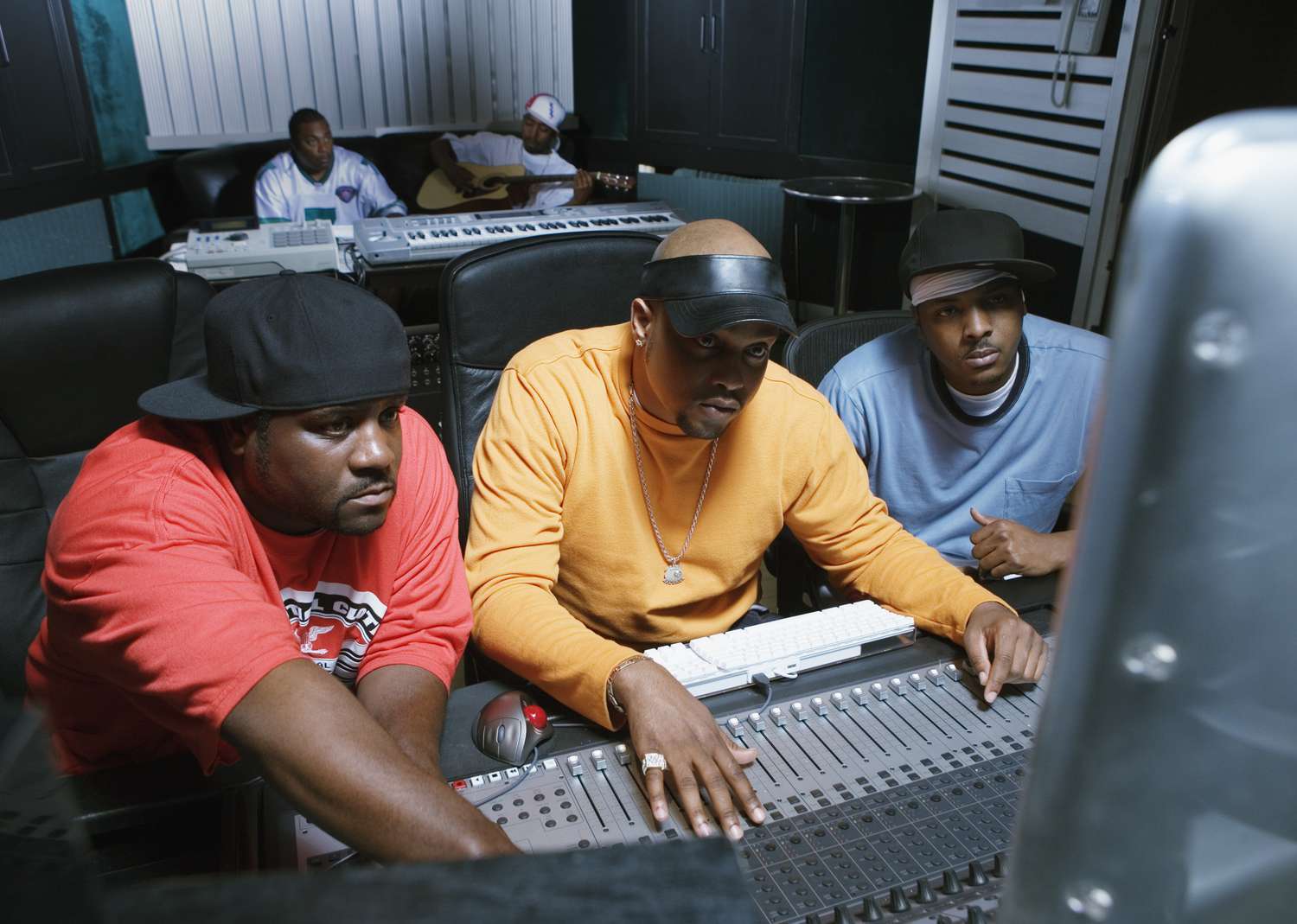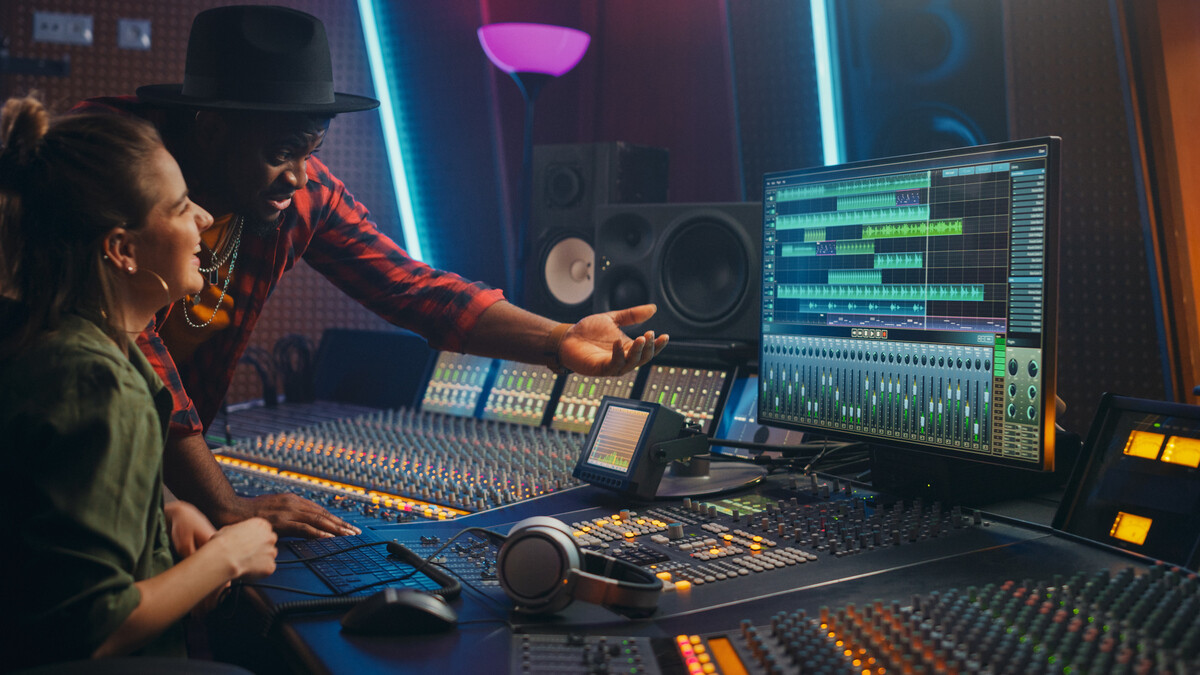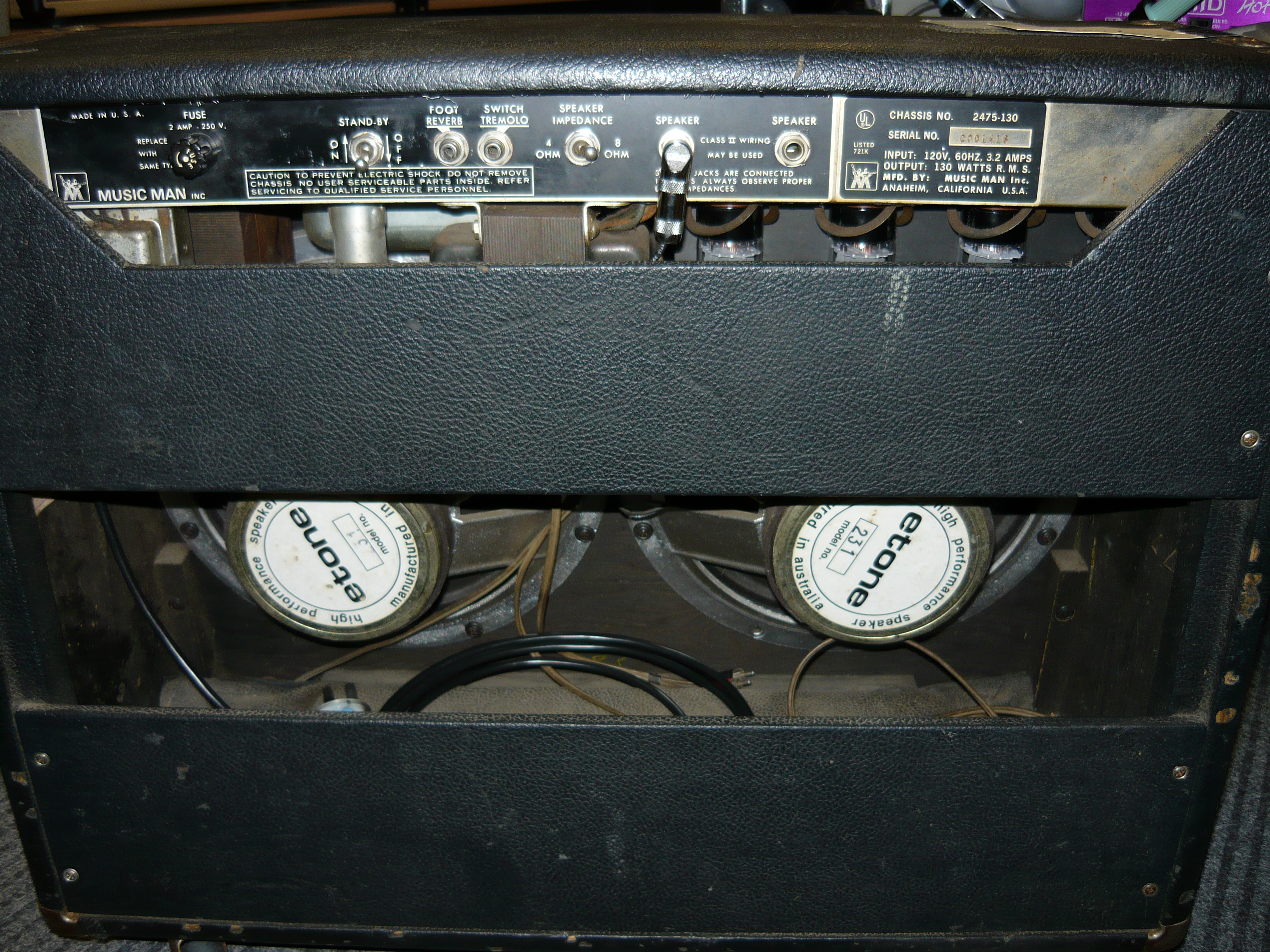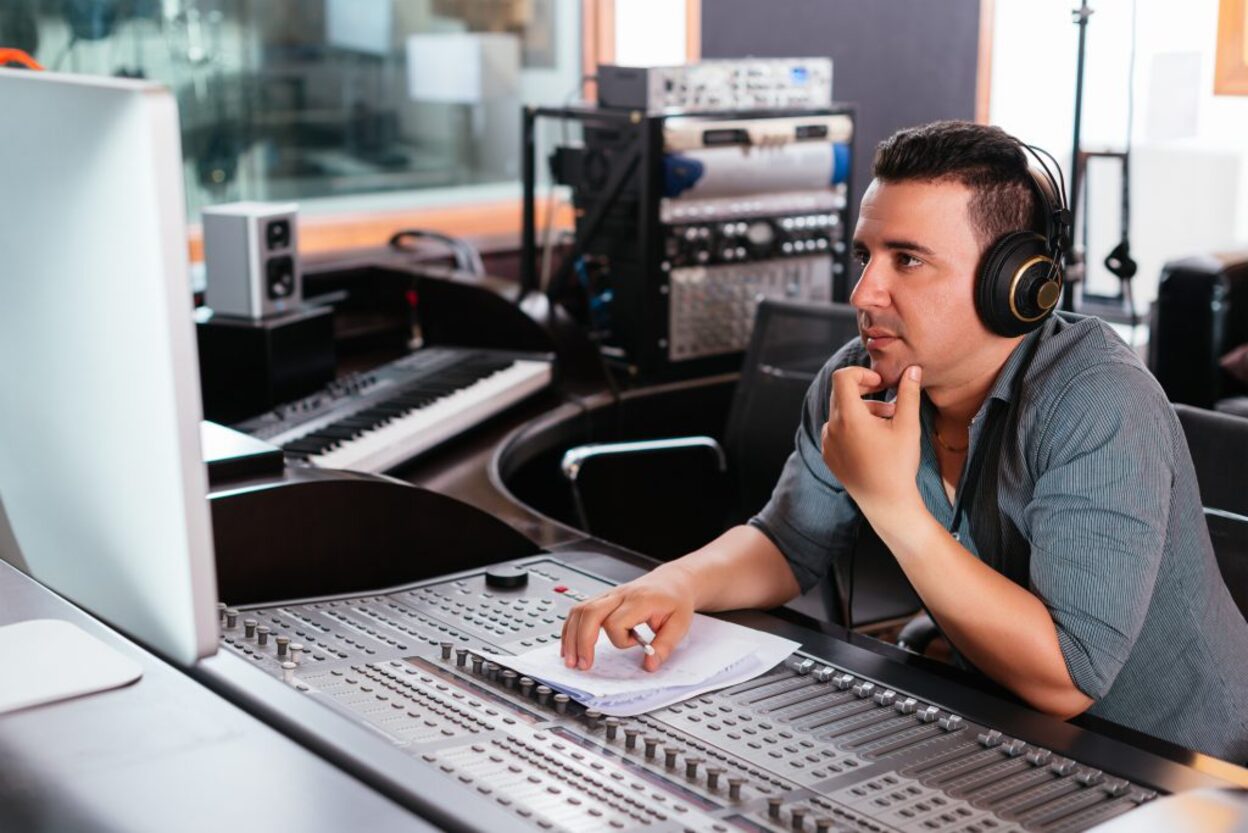Home>Production & Technology>Producer>How Do I Hire A Music Producer
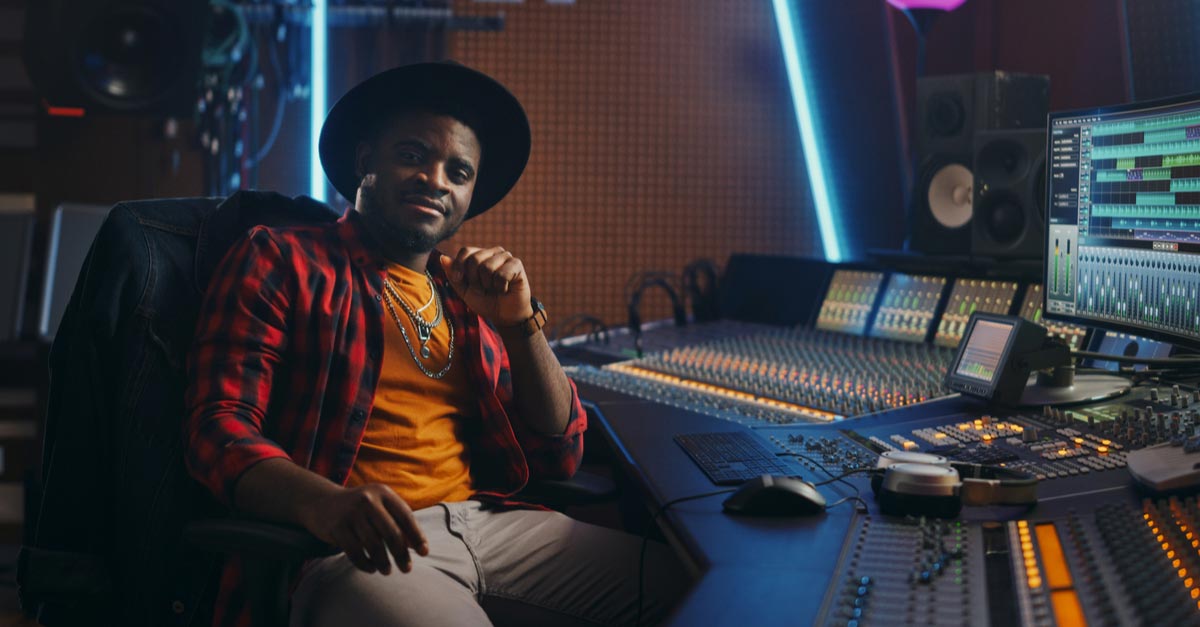

Producer
How Do I Hire A Music Producer
Published: March 5, 2024
Looking to hire a music producer? Discover the steps to finding the perfect producer for your music project and creating a successful collaboration. Learn how to choose the right producer for your sound and style.
(Many of the links in this article redirect to a specific reviewed product. Your purchase of these products through affiliate links helps to generate commission for AudioLover.com, at no extra cost. Learn more)
Table of Contents
Introduction
Hiring a music producer is a pivotal decision that can significantly impact the quality and success of your music project. Whether you are an aspiring artist, a band, or a seasoned musician looking to elevate your sound, finding the right music producer is essential. A music producer is not just a technician who operates recording equipment; they are a creative partner who can help shape and refine your musical vision. From selecting the right studio to providing valuable insights and expertise, the role of a music producer is multifaceted and influential.
In this comprehensive guide, we will walk you through the essential steps and considerations involved in hiring a music producer. By understanding the nuances of this process, you can make informed decisions and embark on a fruitful collaboration that brings your musical aspirations to life. Whether you are seeking a producer for a specific project or aiming to establish a long-term working relationship, the insights shared in this guide will equip you with the knowledge and confidence to navigate the selection and hiring process effectively.
As we delve into the intricacies of hiring a music producer, it's important to recognize that the journey is not merely about finding a professional to oversee the technical aspects of your music. It's about connecting with a creative ally who understands your artistic vision, respects your unique style, and possesses the expertise to enhance and actualize your musical ideas. The relationship between an artist and a music producer is built on trust, communication, and a shared passion for creating exceptional music.
Throughout this guide, we will explore the crucial factors that go into identifying, evaluating, and ultimately selecting the right music producer for your project. From understanding your specific needs and preferences to conducting thorough research and vetting potential candidates, each step of the process plays a vital role in ensuring a harmonious and productive partnership. By the end of this journey, you will be equipped with the knowledge and insights needed to confidently embark on the exciting endeavor of hiring a music producer who aligns with your artistic vision and amplifies the impact of your music.
Understanding Your Needs
Before embarking on the journey of hiring a music producer, it is crucial to gain a clear understanding of your specific needs and expectations. This initial step sets the foundation for a successful collaboration and ensures that you are able to articulate your requirements effectively when engaging with potential producers. To comprehensively understand your needs, consider the following aspects:
-
Artistic Vision: Begin by defining your artistic vision and musical goals. What kind of sound are you aiming to achieve? Are you looking for a producer who can elevate your existing style, or do you seek someone who can introduce fresh perspectives and innovative techniques to your music? Understanding your artistic vision will guide the selection process and help you identify producers whose expertise aligns with your creative aspirations.
-
Genre and Style: Consider the specific genre and style of music that you specialize in or wish to explore. Different producers may have distinct strengths and experiences within particular genres, making it essential to align your needs with a producer's expertise. Whether you are delving into rock, pop, electronic, hip-hop, or any other musical genre, finding a producer who resonates with your preferred style can significantly impact the outcome of your project.
-
Level of Involvement: Determine the level of involvement you expect from the producer. Are you seeking a hands-on collaborator who can contribute to songwriting, arrangement, and instrumentation, or do you primarily require technical expertise in recording, mixing, and mastering? Clearly defining the extent of the producer's involvement will help streamline your search and ensure that you engage with professionals who can meet your specific requirements.
-
Budget and Resources: Assess your budget and available resources for the project. Understanding your financial parameters will enable you to evaluate producers whose rates align with your budget while also considering the value and expertise they bring to the table. Additionally, consider the resources available to support the production process, such as studio facilities, session musicians, and equipment, as these factors may influence your producer selection.
By comprehensively understanding your needs across these key areas, you lay a solid groundwork for the subsequent stages of hiring a music producer. This clarity not only empowers you to communicate effectively with potential producers but also allows you to make informed decisions that align with your artistic vision and project requirements.
Researching Potential Producers
Once you have a clear grasp of your artistic vision and project requirements, the next crucial step in hiring a music producer is conducting thorough research to identify potential candidates who align with your needs. This phase involves delving into the vast landscape of music production, exploring the work of various producers, and evaluating their suitability for your project. Here's a detailed breakdown of the essential aspects to consider when researching potential producers:
-
Industry Reputation and Track Record: Begin by exploring the industry reputation and track record of potential producers. Look for professionals who have a proven history of delivering high-quality productions and have garnered positive recognition within the music community. This could involve reviewing their discography, identifying notable projects they have been involved in, and assessing the impact of their work on the music industry.
-
Portfolio and Discography: Dive into the portfolios and discographies of potential producers to gain insights into their creative range, expertise across different genres, and the overall quality of their productions. Pay attention to the diversity of their work, as this can indicate their adaptability and versatility in bringing various musical visions to life. Listen to samples of their previous productions to gauge the sonic aesthetics, production techniques, and overall artistic sensibilities.
-
Client Testimonials and References: Seek out client testimonials and references from artists and musicians who have previously worked with the producers under consideration. Hearing firsthand accounts of their experiences can provide invaluable perspectives on the producer's professionalism, collaborative approach, and the overall impact they had on the music project. Additionally, reaching out to industry professionals for recommendations and insights can further enrich your understanding of a producer's reputation and working style.
-
Industry Network and Collaborations: Explore the producer's industry network and past collaborations to gauge their connections within the music community. A producer's ability to engage with skilled session musicians, sound engineers, and other industry professionals can contribute to the overall success of your project. Understanding their ability to assemble a talented team and foster collaborative relationships can be pivotal in your decision-making process.
-
Artistic Compatibility and Vision Alignment: Assess the extent to which a producer's artistic sensibilities and vision align with your own. Look for producers who demonstrate a genuine passion for the genre and style of music you specialize in, as this shared enthusiasm can foster a more harmonious and inspiring creative partnership. Consider how their previous work reflects an understanding of the musical elements and nuances that are integral to your artistic expression.
By thoroughly researching potential producers with a keen focus on these aspects, you can effectively narrow down your options and identify professionals who not only possess the technical expertise but also resonate with your artistic vision. This diligent research serves as a critical foundation for the subsequent stages of evaluating and engaging with potential producers, ultimately leading to a well-informed and purposeful decision in hiring the right music producer for your project.
Evaluating Portfolios and Previous Work
Evaluating the portfolios and previous work of potential music producers is a pivotal step in the process of hiring the right professional to bring your musical vision to life. This phase involves a meticulous assessment of the producer's body of work, providing valuable insights into their creative prowess, technical proficiency, and overall suitability for your project. Here's a detailed exploration of the key considerations when evaluating portfolios and previous work:
-
Diversity and Depth: Begin by examining the breadth and depth of the producer's portfolio. Look for diversity in the projects they have been involved in, spanning various genres, musical styles, and artistic contexts. A producer with a versatile portfolio showcases their ability to adapt to different sonic landscapes and collaborate with artists from diverse musical backgrounds, demonstrating a well-rounded approach to music production.
-
Production Quality: Assess the production quality evident in the producer's previous work. Listen attentively to the clarity of sound, the balance of instrumentation, and the overall sonic aesthetics present in their productions. High production quality reflects the producer's technical expertise in recording, mixing, and mastering, underscoring their ability to deliver polished and professional-grade music productions.
-
Artistic Sensibilities: Pay close attention to the artistic sensibilities and creative nuances manifest in the producer's previous projects. Evaluate how they have contributed to the artistic direction, arrangement, and overall sonic character of the music. A producer's ability to enhance the emotional impact, musical dynamics, and thematic coherence of a composition speaks volumes about their artistic sensibilities and their potential to elevate your own musical creations.
-
Innovation and Originality: Look for instances of innovation and originality in the producer's previous work. Assess whether they have introduced unique production techniques, experimental sound elements, or inventive sonic textures that demonstrate a forward-thinking and boundary-pushing approach to music production. A producer who infuses originality into their work can bring fresh perspectives and creative ingenuity to your music, fostering a distinctive and memorable sonic identity.
-
Collaborative Dynamics: Consider the collaborative dynamics and the producer's interaction with artists in their previous projects. Evaluate how they have nurtured a collaborative environment, respected the artistic input of the musicians, and facilitated a synergistic creative process. A producer who values collaboration and cultivates a supportive working atmosphere can engender a sense of trust, openness, and creative exchange, laying the groundwork for a fruitful partnership.
By meticulously evaluating the portfolios and previous work of potential music producers through these critical lenses, you can gain profound insights into their creative prowess, technical acumen, and artistic compatibility. This discerning evaluation serves as a cornerstone in the process of selecting a music producer who not only possesses the requisite skills but also resonates with your artistic vision, ensuring a harmonious and impactful collaboration that elevates your music to new heights.
Communication and Collaboration
Effective communication and seamless collaboration form the bedrock of a successful partnership between an artist and a music producer. This phase of the hiring process transcends technical expertise, delving into the realms of interpersonal dynamics, creative exchange, and shared vision. Here's a detailed exploration of the pivotal aspects that underpin communication and collaboration when engaging with potential music producers:
Open Dialogue and Artistic Exchange
Establishing open and transparent dialogue with potential music producers is paramount. This involves articulating your artistic vision, musical aspirations, and specific expectations for the project. Equally important is the producer's ability to actively listen, comprehend, and engage in a constructive dialogue that fosters mutual understanding. A producer who demonstrates receptiveness to your ideas, offers insightful feedback, and communicates their creative input effectively lays the groundwork for a collaborative partnership built on respect and shared artistic exchange.
Creative Alignment and Vision Cohesion
Engaging with a music producer entails assessing the degree of creative alignment and vision cohesion. It's imperative to gauge the producer's capacity to comprehend and embrace your artistic ethos, musical style, and creative objectives. Equally significant is their ability to infuse their expertise and insights in a manner that enhances your musical vision while respecting its intrinsic integrity. A producer who exhibits a deep understanding of your artistic identity and showcases a collaborative spirit in aligning their creative contributions with your vision is poised to foster a synergistic and enriching collaboration.
Workflow and Project Dynamics
The dynamics of workflow and project management constitute pivotal elements in the collaboration with a music producer. It involves discussing the logistical aspects of the production process, including scheduling, studio arrangements, and the delineation of roles and responsibilities. Effective communication regarding timelines, milestones, and the overall workflow ensures a cohesive and organized approach to the project. Additionally, understanding the producer's approach to project management, their receptiveness to feedback, and their ability to adapt to evolving creative dynamics is crucial in fostering a productive and harmonious collaboration.
Respectful and Constructive Feedback
Central to the collaborative process is the exchange of feedback and the cultivation of a constructive creative environment. A music producer who offers respectful and insightful feedback, provides constructive suggestions, and encourages an open dialogue for artistic exploration can significantly enhance the creative evolution of your music. Similarly, your receptiveness to the producer's input, willingness to explore new creative avenues, and ability to engage in a symbiotic exchange of ideas contributes to a dynamic and enriching collaborative dynamic.
By prioritizing effective communication, nurturing a collaborative ethos, and fostering a shared artistic exchange, you lay the groundwork for a partnership that transcends technical proficiency, culminating in a cohesive and impactful collaboration with the selected music producer.
Negotiating Terms and Budget
Negotiating terms and budget with a music producer is a crucial phase that demands a balanced approach, combining financial prudence with the pursuit of artistic excellence. As you delve into this stage of the hiring process, several key considerations come into play, shaping the framework for a mutually beneficial agreement.
Defining Scope and Deliverables
Initiate the negotiation process by clearly defining the scope of the project and the associated deliverables. This encompasses outlining the producer's responsibilities, the expected deliverables such as pre-production, recording, mixing, and mastering, and the anticipated timeline for each phase. By establishing a comprehensive understanding of the project's scope, both parties can align their expectations and ensure clarity in the negotiation process.
Budget Alignment and Value Proposition
Negotiating the budget entails a delicate balance between aligning financial parameters and recognizing the value proposition offered by the music producer. Consider the producer's experience, expertise, and the potential impact of their involvement on the project's quality and marketability. Simultaneously, evaluate your budget constraints and the financial viability of the project. Strive to strike a balance that acknowledges the producer's worth while aligning with your financial resources.
Contractual Agreements and Rights
As negotiations progress, it is imperative to address the contractual agreements and rights associated with the collaboration. This includes delineating ownership and usage rights of the produced music, royalty arrangements, and the producer's entitlement to backend points or other forms of compensation. Ensuring clarity in these contractual aspects safeguards both parties' interests and establishes a foundation of trust and transparency.
Flexibility and Compromise
Negotiation inherently involves a degree of flexibility and compromise. Be open to discussing alternative fee structures, potential revenue-sharing models, or creative ways to accommodate the producer's compensation within your budget. Similarly, the producer's willingness to adapt their terms, offer value-added services, or tailor the scope of work to align with your budget constraints can facilitate a more amicable negotiation process.
Clarity and Documentation
Throughout the negotiation phase, prioritize clarity and documentation. Formalize the agreed-upon terms, deliverables, and financial arrangements in a detailed contract. This document should encapsulate the mutual understanding reached during the negotiation, serving as a reference point and a safeguard against misunderstandings or discrepancies in the future.
Navigating the negotiation of terms and budget with a music producer necessitates a blend of financial acumen, appreciation for artistic value, and a commitment to fostering a mutually advantageous collaboration. By approaching this phase with diligence, transparency, and a spirit of constructive dialogue, you pave the way for a harmonious partnership that honors both the artistic vision and the financial considerations of the project.
Finalizing the Agreement
Finalizing the agreement marks the pivotal culmination of the meticulous selection process, negotiation phase, and collaborative dialogue with the chosen music producer. This stage entails the crystallization of the mutually agreed terms, the formalization of the partnership, and the establishment of a cohesive framework that underpins the upcoming creative endeavor.
With the negotiated terms and budget serving as the guiding parameters, the finalization of the agreement involves the preparation and review of a comprehensive contract. This document encapsulates the nuanced understanding reached between the artist and the producer, encompassing the scope of work, deliverables, financial arrangements, ownership and usage rights, royalty structures, and any ancillary agreements pertaining to the project.
The contract serves as a testament to the mutual commitment and shared vision underlying the collaboration. It delineates the roles, responsibilities, and expectations of both parties, establishing a clear roadmap for the production process. By formalizing the agreement in writing, potential ambiguities are mitigated, and both the artist and the producer are safeguarded against misunderstandings or disputes that may arise during the course of the project.
In addition to the contractual aspects, the finalization of the agreement may involve logistical considerations such as scheduling studio sessions, coordinating with session musicians, and aligning on the project timeline. Clarity on these logistical facets ensures a streamlined and organized execution of the production process, fostering an environment conducive to creativity, productivity, and artistic excellence.
Furthermore, the finalization of the agreement signifies a symbolic union of artistic visions and a shared commitment to realizing the musical aspirations encapsulated in the project. It embodies the fusion of technical expertise, creative synergy, and a collective dedication to crafting exceptional music that resonates with audiences and fulfills the artistic ambitions of the artist and the producer.
As the ink dries on the finalized agreement, both the artist and the producer embark on a collaborative journey underpinned by trust, transparency, and a mutual pursuit of musical excellence. The formalization of the partnership sets the stage for a harmonious and productive collaboration, laying the groundwork for the transformative realization of the artistic vision through the artistry and expertise of the selected music producer.
Conclusion
In conclusion, the process of hiring a music producer is an intricate and multifaceted journey that transcends mere technical considerations. It encompasses a profound exploration of artistic vision, meticulous research, discerning evaluation, and purposeful collaboration. The culmination of this process rests on the selection of a music producer who not only possesses the requisite technical expertise but also resonates with the artist's creative ethos, fostering a harmonious and impactful partnership.
The journey commences with a deep introspection into the artist's musical aspirations, genre preferences, and the envisioned scope of the project. Understanding these foundational elements lays the groundwork for informed decision-making and effective communication with potential producers. Subsequent research delves into the industry reputation, creative range, and collaborative dynamics of prospective producers, providing invaluable insights that inform the selection process.
The evaluation of portfolios and previous work serves as a pivotal phase, offering a window into the producer's artistic sensibilities, technical acumen, and collaborative dynamics. This discerning assessment facilitates the identification of a producer whose creative prowess and vision align with the artist's aspirations, setting the stage for a synergistic partnership.
Effective communication and seamless collaboration form the bedrock of the ensuing engagement with the chosen music producer. The cultivation of open dialogue, shared artistic exchange, and a constructive feedback loop fosters a dynamic and enriching partnership that transcends technical proficiency, nurturing a creative synergy that amplifies the artistic vision.
Negotiating terms and budget entails a balanced approach that acknowledges the producer's value proposition while aligning with the artist's financial parameters. This phase demands flexibility, compromise, and a commitment to fostering a mutually beneficial collaboration that honors both artistic integrity and financial prudence.
The finalization of the agreement symbolizes the union of artistic visions and the formalization of a partnership grounded in trust, transparency, and a shared commitment to musical excellence. It sets the stage for a transformative journey that harnesses the artistry and expertise of the selected music producer to realize the artist's musical aspirations.
In essence, the process of hiring a music producer transcends a transactional engagement; it embodies a profound quest to forge a collaborative alliance that elevates the artist's music to new heights. By navigating this journey with diligence, discernment, and a shared passion for musical creativity, artists can embark on a transformative partnership that enriches their artistic journey and yields exceptional musical outcomes.


